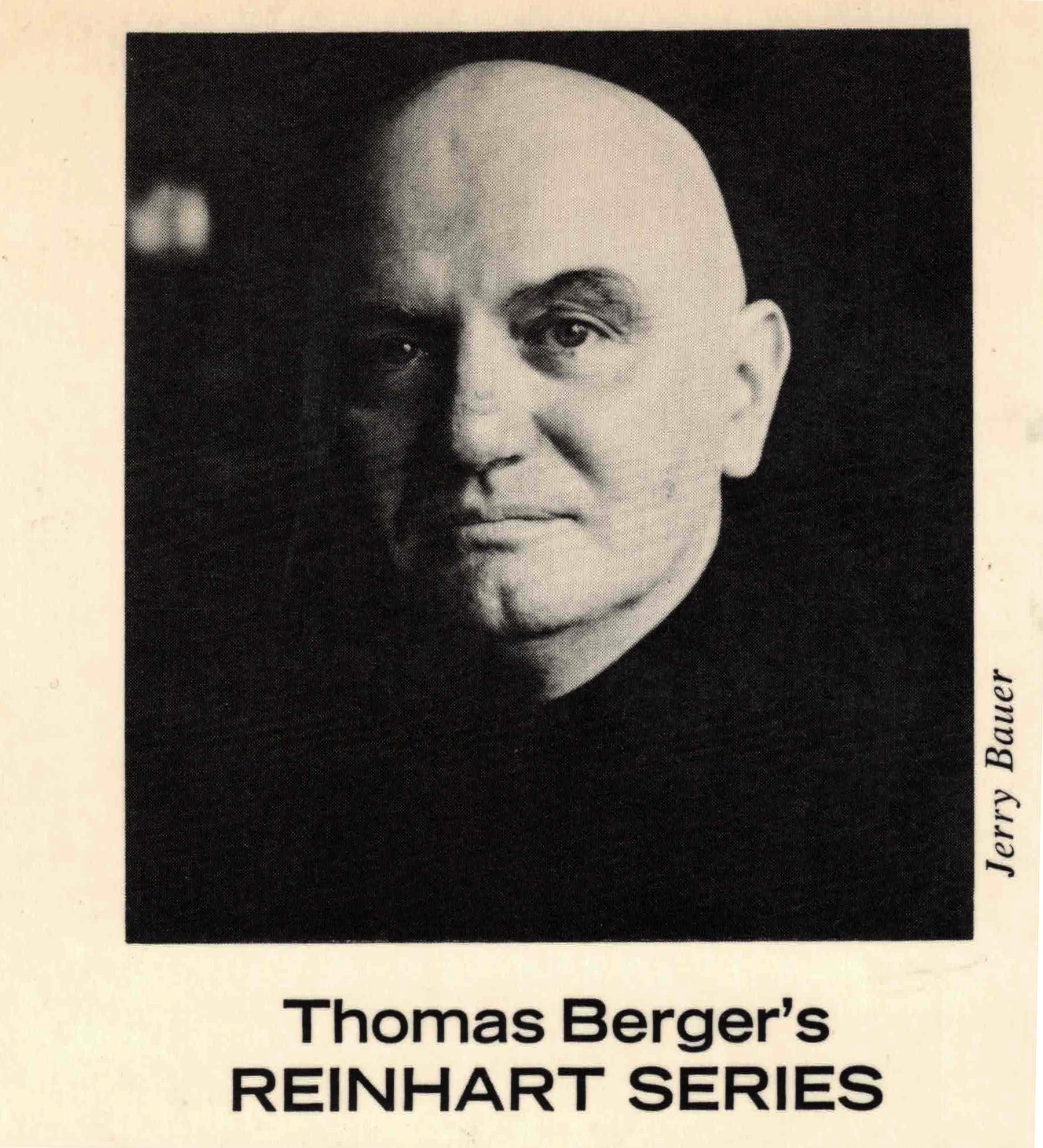I found out Thomas Berger died.
. Day .
Thomas Berger, ‘Little Big Man’ Author, Is Dead at 89
Thomas Berger was one of my favorite novelists. I might have read all of his books. His prose style is austere, but I say that knowing it will conjure up the idea of Raymond Carver or something prairieish and windblown. It’s just his style that’s austere. His subject matter is often a matter of complete fantasy, for example his wonderful book Being Invisible, which is about a man who is suddenly invisible. Or when he sticks to “reality”, he generally gives us characters who behave exceedingly strangely, like in The Houseguest, in which a houseguest causes so much trouble for his hosts that they are forced to try to kill him. Austere might be the wrong word for his style, but it’s simple, very direct. The narrator is invisible but authoritarian (I don’t think he has a book with a first-personor other unreliable narrator, I’d like to be told I’m wrong). Maybe a better word for his style would be “brutal”. He has a weird, fun mix of cardboard characters and places to set up the story (he’ll call a mill town “Millville”, like he’s not even trying) but then a lot of unique detail emerges in the telling.
He is really like no other author I can name, he’s just Bergerish. If I had to describe a typical Berger novel (there are atypical ones) I’d say he sets up a conflict, immediately, and pushes it to a logical or maybe an illogical conclusion. The conflicts themselves are generally illogical. (I’m terrible at defining and recognizing what is “logical” though.) But they are strangely not absurd, despite the premises. They’re dark, but hilariously so. I read an interview with him once where he said the novelist’s job “is to say NO to everything.” It seems like everyone’s always wrong in his books. And his titles are great, like Changing The Past (about a guy who can change the past) or Sneaky People (some people are sneaky).
Most recently, I re-read The Feud. It’s sort of a rule of filmmaking that the main conflict gets introduced ten minutes in, or on page ten. Berger goes way faster. In The Feud, a man, named Dolph, walks into a hardware store with a dead but maybe still smoldering cigar. The store man, who doesn’t know him, says take it outside. Dolph says it’s dead. The store man says it might not be and you guys from [the next town over] are all the type of guy to walk in a hardware with a lit stogie. Dolph leaves.
That night the hardware burns to the ground. A feud between the two families and the two neighboring towns begins. This is all on page one. I should have typed it instead of typing this synopsis, no doubt it’s shorter.
Another wonderful memory: when I was stuck in the hospital for fourteen days waiting for my leg to be operated on, I read Little Big Man. I was under the influence of a morphine drip, and it seemed to take forever. I must have missed a lot. I still remember a lot of details though, not of plot, which the book didn’t have a lot of, didn’t need it, but just things Jack Crabb, the narrator said. For instance, he said he didn’t like to hear dirty stories because they made him “wistful”. (Ah! Jack Crabb is that unreliable narrator I mentioned Thomas Berger’s books never having.) I still wish people knew what I meant when I say I feel wistful. (The movie of Little Big Man is good, by the way, as is the critically panned Belushi/Aykroyd film Neighbors, and also a PBS short film of The Feud is out there, and it’s good too.)
He may have been the ultimate mid-list author: no fanfare about the books coming out, despite the occasional movie deal, but it’s inconceivable that he would ever go unpublished. What will I read again next?
I recommend everything. Sneaky People was a favorite, as was Arthur Rex (a retelling of the Arthur legend in which Arthur is forced to deal with all manner of domestic concerns around Camelot, like why his brother is a crummy knight but a gourmet cook). The Houseguest is like a faster, meaner Neighbors. Regiment of Women describes a dystopian (for the guys) world where men are pretty much fattened up and used as breeding stock, and only allowed to perform jobs like being a woman’s secretary. (I think it might have a first-person narrator too.) All these are good. Little Big Man might be his least typical book but it’s excellent (and funny. One of the subplots has Crabb’s sister chasing after a man for years, unsuccessfully; the man is Walt Whitman). I can just keep naming them. The Reinhart books are the only ones that seem dated (his first book, Crazy In Berlin, concerns Reinhart, a character he returned to four times. Crazy In Berlin is loooong, and really more like a war memoir than a Berger novel. It’s a Berger book but he developed and streamlined his style after that.) Killing Time, which deals with time somehow, and the insanity plea, was good but confusing. Don’t start there. Everything else: take it to the beach.

literature Thomas Berger The Feud Neighbors (film) Little Big Man Sneaky People obituaries
Previous: July 6, 2014: I went to the 22nd Perdido Bay Intergalactic Sunfish Regatta.